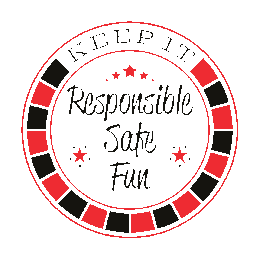
Online gaming has become a worldwide phenomenon, offering endless entertainment options for people of all ages. From action-packed adventures to strategic mind games, the digital realm provides an immersive experience that captivates players and transports them to virtual worlds. However, like any form of entertainment, it is essential to strike a balance between indulging in these games and practicing responsible play. In this article, we will explore the importance of finding this equilibrium and the measures we can take to ensure that gaming remains a fun and safe experience for everyone involved.
The Allure of Online Gaming
Online gaming possesses a unique allure that has captured the attention of millions around the world. Its ability to transport players to fantastical realms and offer a sense of escapism makes it incredibly enticing. The opportunity to connect and compete with others from different corners of the globe also adds a social element, fostering new friendships and community bonds.
Furthermore, the growth of various game genres has widened the appeal of online gaming. Whether one enjoys the adrenaline rush of first-person shooters, the strategic planning of real-time strategy games, or the role-playing aspects of massive multiplayer online games, there is something for everyone.
The Pitfalls of Excessive Gaming
While online gaming brings numerous benefits and joy, it is not without its potential downsides. One of the most significant risks is the potential for excessive gaming, leading to neglect of other aspects of life. When gaming becomes an obsession and starts to interfere with one’s personal relationships, education, or professional responsibilities, it is crucial to take a step back and reevaluate priorities.
Addiction to online gaming can also have negative implications for physical and mental well-being. Sitting for extended periods without breaks can lead to sedentary lifestyles and various health issues. Moreover, excessive gaming can contribute to social isolation, as players become increasingly engrossed in their virtual worlds rather than engaging in real-life interactions.
Strategies for Responsible Play
1. Set Limits: Establishing boundaries on gaming time is crucial. Allocate specific hours for gaming and ensure that it does not encroach upon essential activities like work, education, chores, or quality time with loved ones. Utilize alarms or notifications to help keep track of time.
2. Prioritize Real-World Relationships: Maintain a healthy balance between online and offline social interactions. While making connections through gaming is great, it is equally important to nurture relationships with family and friends in the physical world.
3. Take Breaks and Engage in Physical Activity: Constantly sitting and gaming can negatively impact one’s physical health. Remember to take regular breaks, stretch, and engage in physical activities to counteract the sedentary nature of gaming.
4. Practice Self-Care: Mental well-being is crucial. Ensure that gaming does not become a coping mechanism for other underlying issues or a method of escape. Take time for self-care activities such as meditation, exercise, and pursuing other hobbies.
5. Stay Aware of Age Restrictions and Content: Gaming platforms generally have age restrictions for a reason. It is important to respect and follow these guidelines to ensure age-appropriate content consumption and protect younger players from potentially harmful experiences.
The Role of Parents and Guardians
Parents and guardians play a crucial role in promoting responsible gaming habits among children and teenagers. By establishing healthy boundaries, monitoring game time, and discussing the importance of responsible play, they can help strike a balance between entertainment and other important aspects of life.
Additionally, parents should familiarize themselves with the games their children play. Understanding the content, potential risks, and engaging in open conversations about gaming can help mitigate any negative effects and ensure a safer gaming experience for young ones.
Conclusion
Online gaming brings joy, excitement, and a sense of community to millions worldwide. However, it is essential to find a balance between indulging in these virtual worlds and maintaining a responsible approach to gaming. By setting limits, prioritizing real-world relationships, taking breaks, practicing self-care, and staying aware of age restrictions, we can ensure that online gaming remains a source of entertainment that enhances our lives rather than consuming them.

